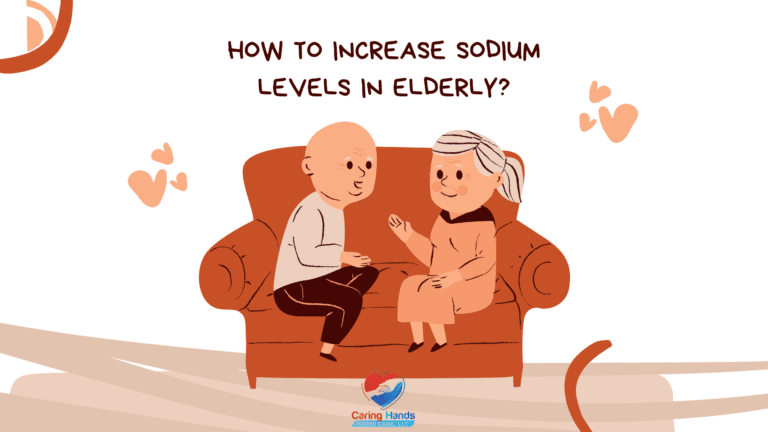10+ Simple & Healthy Water Exercises for Seniors
Seniors, as they age, require physical activity more than ever. Water exercises with their several benefits can be an effective way for elderly individuals to maintain their physical and cognitive health while engaging in entertaining exercises.
The traditional land exercises may require more movement and strain, however, on the other hand, the resistance properties of water, provide seniors with a unique and comfortable environment to engage in physical activities. This article will help you explore some suitable water exercises for elderly people and their potential benefits to promote independence and improve the overall quality of life.
What are some Suitable Water Exercises for Seniors?
Considering several factors including the limited movement of muscles and limbs, the following exercises can be performed by elderly individuals to help them stay physically active.
1. Aqua Aerobics
Aqua aerobics is typically a group class that involves several people engaging in water exercises focusing on cardiovascular health, muscle strength, and overall toughness of the body.
These water exercises often include leg lifts, arm movements, torso twists, and jumping jacks. Another advantage of these exercises is the support of other people and the accessibility to a supportive environment to help you engage in activities promoting physical well-being.
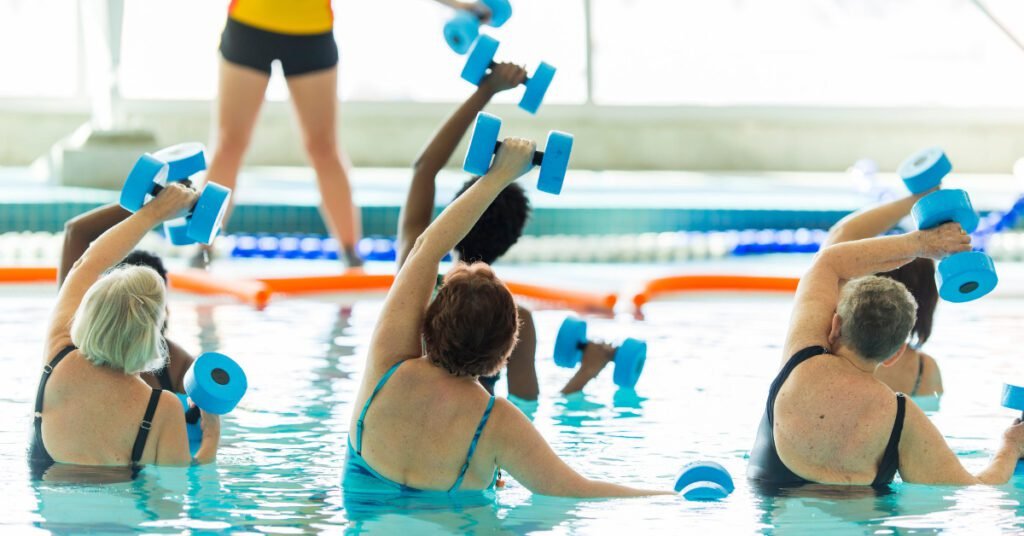

2. Water Walking
Water walking is a water exercise where people walk in a pool with water reaching their waist level. As one property of water is its resistance, water walking is a great workout for muscles without putting much pressure on the limbs.
This exercise can effectively help in leg muscle movement, flexibility, and overall strength of the body. Seniors can walk forward, backward, or sideways, depending on the muscle group under consideration. Another advantage of this exercise is increased balance and coordination among leg muscles reducing risks of falls, common in elderly individuals.
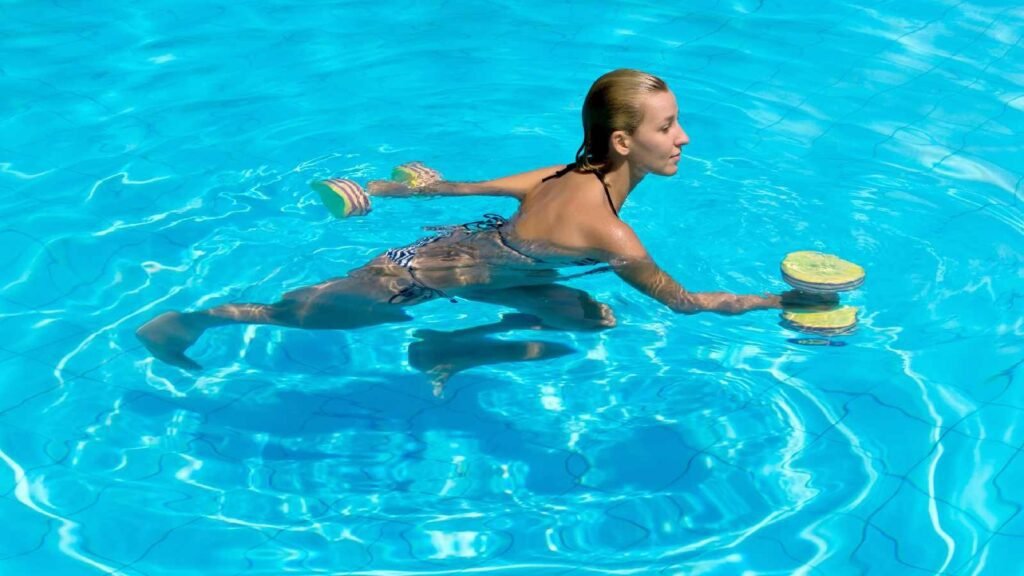

3. Water Tai Chi
Water Tai Chi is an exercise that focuses on mindfulness and flowing movements performed in water. The practice of Tai Chi is more effectively supported in water by the buoyancy of the medium that supports the body and reduces risks of falls and injury to seniors.
This water exercise can effectively help in engaging in mindful exercises and stress reduction while also focusing on balance and coordination among muscles in water.
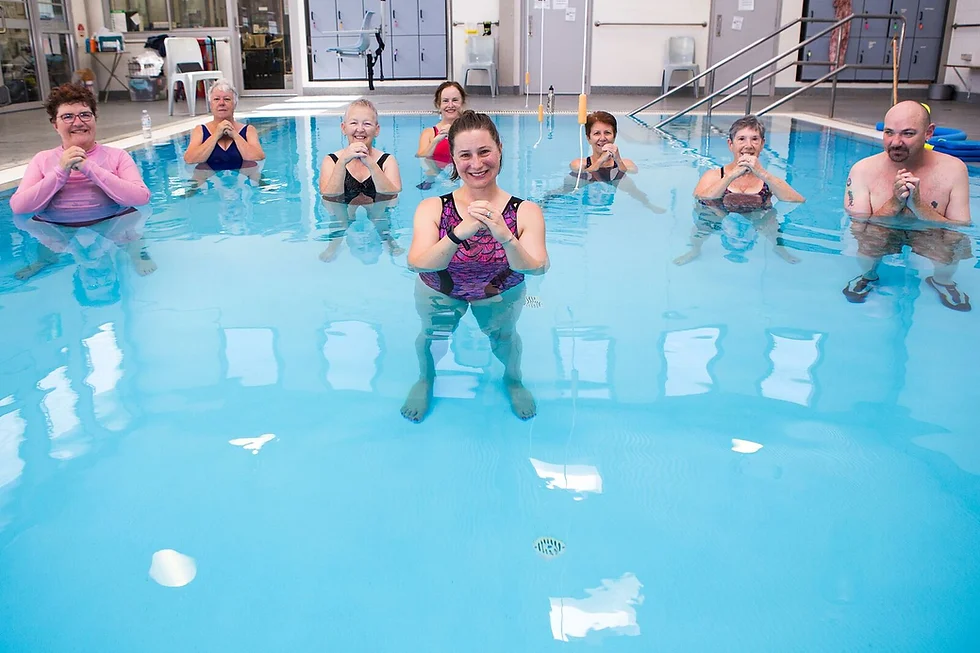

4. Water Jogging
Seniors can also engage in running or jogging in water. This exercise helps strengthen leg muscles and improves the cardiovascular health of senior individuals. In order to carry out this activity, seniors are submerged in shallow water or are provided with a flotation belt for support underwater.
However, individuals can control the speed and depth of water, according to their own needs and preferences.
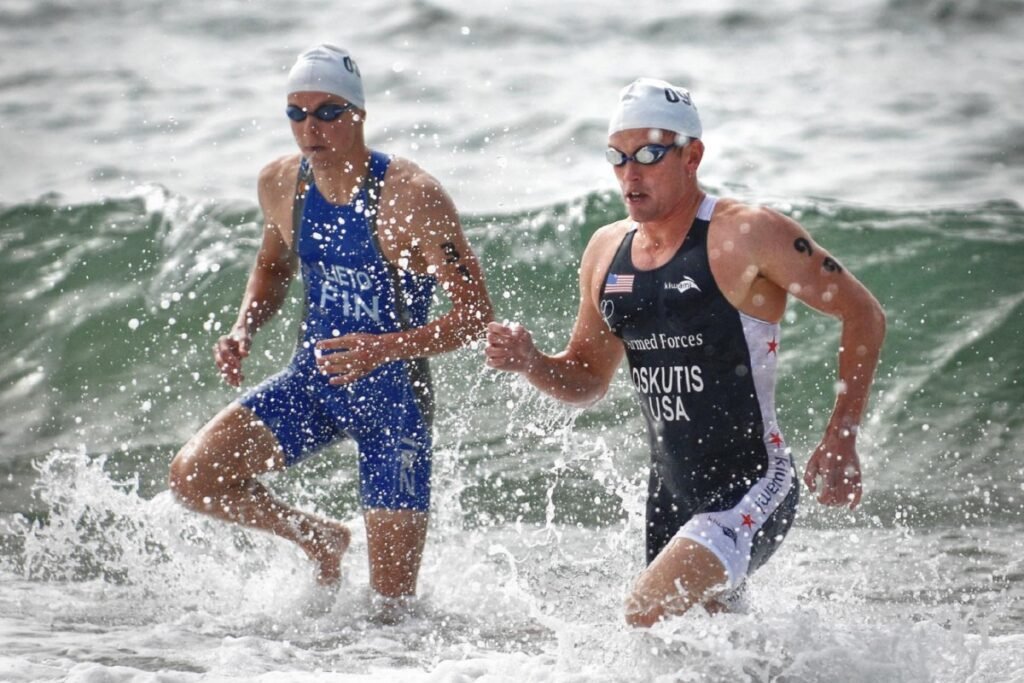

5. Water Resistance Training
Water resistance training is another water exercise that focuses on strengthening the muscles of arms and legs to improve the overall strength and well-being of seniors. This training usually involves using foam dumbbells, resistance bands, or other types of equipment underwater.
Using this equipment, under the water medium can help engage in tough and demanding exercises increasing and promoting the overall strength of seniors.
6. Water Yoga
The traditional yoga poses are applied and practiced underwater, where the water reaches the waist. Seniors can effectively improve their balance and coordination among several muscles of their body by engaging in water yoga.
Moreover, with the physical benefits of yoga come its emotional benefits as well. Yoga is known to have a positive impact on the psychological well-being of individuals. Therefore not only does water yoga help strengthen muscles but it also has a positive impact on the emotional well-being of seniors.
7. Aqua Cycling
In water cycling, a bike is submerged underwater and individuals have to ride the bike. This exercise helps strengthen leg muscles and the overall toughness of the body. Aqua cycling is usually combined with exercises that promote strengthening the muscles of the upper part of the body.
The resistance of water makes the exercise more demanding and tough, but it also helps in burning calories, promoting flexibility, and building endurance.
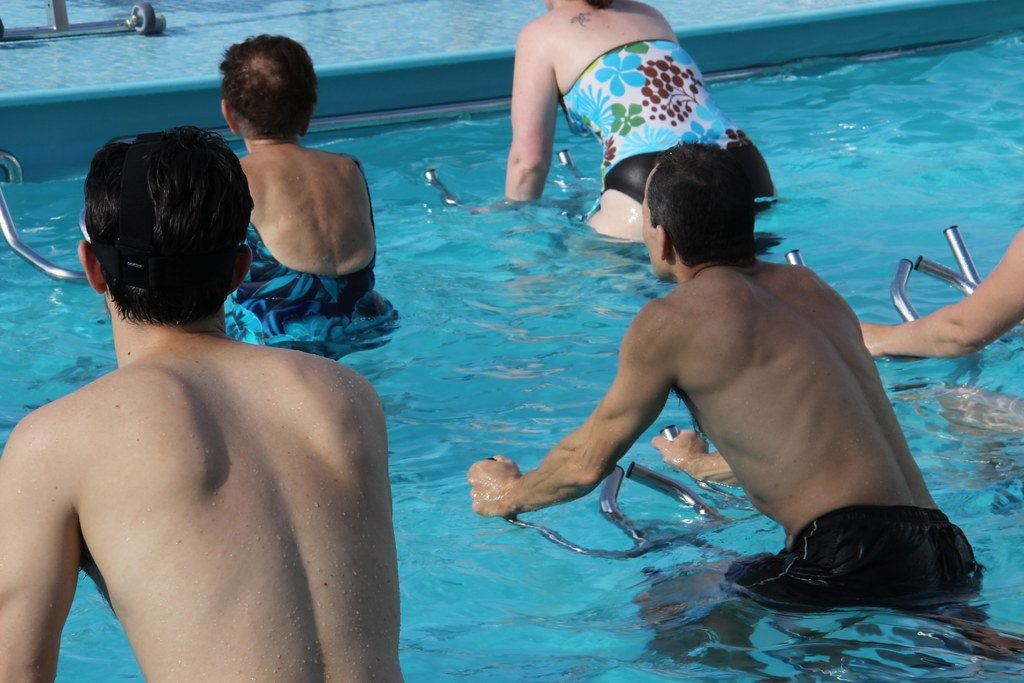

8. Pool Noodle Exercises
A pool noodle is a flotation device that assists people in performing pool noodle exercises. Senior individuals, with the aid of pool noodle devices, can perform leg kicks, arm circles, or core twists.
These exercises can help seniors who require assistance in water strengthen certain groups of muscles and build balance and flexibility.
9. Floating Relaxation
Floating relaxation is simply floating on the surface of the water without any extra effort. This exercise can be beneficial for stress reduction, reducing tension in muscles and joints, and providing a soothing effect while floating on the surface of the water.
Seniors can also use pool noodles, flat boards, or other equipment to engage in floating relaxation exercises.
10. Water Volleyball
Another fun water exercise is water volleyball, where individuals engage in playing volleyball but are submerged in water. Playing in teams helps build unity, coordination, teamwork, and overall a positive impact on emotional health.
This exercise can also help seniors improve their cardiovascular health, strengthen muscles, develop reflexes, and improve hand-eye coordination.
Also, Read: Help An Elderly Person With Toileting | Safety Tips & Techniques
How does Water Exercises Physically Benefit Seniors?
Water exercises with their complexity and demanding efforts are known to have a significant impact on the physical health of individuals. Seniors are most likely to benefit from water exercises as they require physical activity more than they ever did in their whole lives. Some of the positive physical impacts of water exercises are given below.
Cardiovascular Health
A natural property of water is its resistance. This natural resistance creates a natural effort for senior individuals to move underwater. This results in increased heart rate and improved circulation without putting excessive stress on the joints.
Engaging in water exercises can significantly impact the cardiovascular health of seniors, helping them maintain a healthy and stable heart.
Muscle Strength and Endurance
The resistance of water naturally challenges several groups of muscles in our bodies. These muscles require more effort for movement than they do when engaging in traditional land exercises. Seniors can engage in running, jogging, or cycling underwater to help target different muscle groups.
Engaging in water exercises can have a great impact on muscle strength and endurance over time, resulting in increased muscle mass, enhanced muscle tone, and overall improved strength of the body.
Joint Health and Flexibility
Due to the buoyancy of the water, water exercises are the most suitable for senior individuals as they are gentle on the joints. This buoyancy of water reduces the impact on joints while providing support and stability. This allows seniors to move more freely and comfortably, improving joint flexibility. Regular participation in water exercises can help get rid of joint stiffness, reduce inflammation, and prevent further deterioration of joint health.
Weight Management
Water exercises offer seniors an effective way to manage their body weight and overall health. The resistance provided by water helps seniors burn more calories during exercise, compared to similar activities performed on land. Moreover, combined with a balanced diet, regular participation in water exercises can contribute to healthy weight management and the overall well-being of senior individuals.
Improved Balance
The unstable nature of water requires seniors to engage their muscles and maintain balance while performing exercises. This helps improve body awareness and balance control, reducing the risk of falls and improving overall stability in senior individuals.
Water exercises that require movements in multiple directions challenge seniors’ coordination skills, enhancing their ability to perform daily activities safely and effectively.
Pain Management
Due to the buoyancy of water, it doesn’t put pressure on the injured or sore areas of the body. Senior individuals can effectively engage in water exercises with minimal discomfort. Moreover, water exercises also promote blood flow to the injured tissues, promoting a quicker healing process.
This helps seniors engage in physical activity which is also beneficial in quicker healing of injuries or affected areas.
What are the Cognitive Benefits of Water Exercises for Seniors?
Water exercises can be beneficial for the physical as well as cognitive health of an individual in the following ways.
Enhanced Brain Function
As individuals engage in new water activities, learning new movements and the dynamic world of water exercises, their cognitive health improves. These skills can help improve the cognition and problem-solving skills of elderly individuals.
With the impact of water exercises on physical as well as cognitive health, it can become an essential part of seniors’ daily routines as they age.
Stress Reduction
Water itself has a soothing and calming effect on our minds, helping us in relaxation. The calm movements of water and being submerged in it, engaging in floating relaxation can help in stress reduction and overall improve cognitive health.
As we age, we look more for peace and tranquility. Seniors can have that peace through actively engaging in soothing water exercises.


Mood Improvement
Engaging in exercise releases the hormone endorphin, known to have an association with a positive mood. The release of endorphins during exercise helps senior individuals feel happier and more relaxed, reducing symptoms of anxiety and depression, and ultimately enhancing their mood.
Moreover, as seniors engage in water exercises, sometimes in the company of other people, it promotes a social connection with people fostering a sense of social support and an enhanced mood.
Increased Mental Awareness
Water exercises require individuals to stay alert to their surroundings and perform activities. This can improve mental alertness and cognitive processing speed, which may seem to deteriorate as one ages.
Over time, regular participation in water exercises can significantly improve the mental awareness of senior individuals, ultimately improving their cognitive abilities and health.
Improved Sleep Quality
Physical activity, including water exercises, has been shown to have a positive impact on the sleep quality of seniors. Regular exercise can help improve sleep quality, reduce symptoms of insomnia, and promote a better sleep cycle.
Adequate sleep is crucial for effective functioning in daily life, brain health, and memory consolidation, all of which may seem to deteriorate as we age. Hence, it’s necessary to actively participate in water exercises to benefit from it even in old age.


Do Water Exercises Have Any Impact on Emotional Health?
Yes, as water exercises are known to have an association with stress reduction and mood enhancement, they also provide individuals with good emotional health. Moreover, participating in water exercises in the form of social groups may also develop a sense of belonging, reducing feelings of isolation and loneliness.
Other than that, learning new skills and enhancing their physical abilities can also foster a sense of autonomy in senior individuals. They may feel motivated to carry out other tasks and feel reluctant to rely on others for their own necessities.
Overall, performing water exercises may prove fruitful in the long term for seniors, helping them in various aspects of life, enhancing their self-worth and self-esteem, and ultimately having a positive impact on the emotional health of senior individuals.
Recommended Duration and Frequency of Water Exercises
The level of frequency or duration may vary from individual to individual based on their fitness and their ability to perform such activities. However, a general idea for an adequate duration and frequency of water exercise for seniors is given below.
Duration
A normal duration for seniors to engage in water exercises is 30 minutes to 1 hour per session. However, in the case of beginners, they can start with less duration and gradually increase it.
Frequency
Ideally, seniors can engage in water exercises 2 to 3 times per week. However, seniors seeking greater fitness gains or recovery from an injury can engage in water exercises 4 to 5 times per week.
Conclusion
Water exercises provide senior individuals with a more fun way to maintain their physical and cognitive health. The elderly need to incorporate these fun, yet essential activities in their daily living to promote cardiovascular health, muscle strength, and joint health. Moreover, stress reduction, mood enhancement, and better sleep quality are also improved with regular water exercises. Families and caregivers can help the seniors through the whole process and assist where necessary. With dedication and consistency, senior individuals can develop a sense of autonomy and active aging, and keep themselves healthier and fit as they age.
FAQs
Are water exercises suitable for all seniors?
No, not all seniors may find water exercises suitable. It is essential to consider any medical condition and consult a healthcare professional before making any decision.
What equipment can be used to help seniors engage in water exercises?
Certain flotation devices such as pool noodles and water dumbbells can help assist seniors with water exercises.
Can water exercise be done if one doesn't know how to swim?
Yes, water exercises can be done in shallow water where one can stand comfortably and not worry about their inability to swim.
Can water exercise help with weight loss?
Yes, water exercises can help burn calories and improve metabolism, ultimately helping in weight loss.
Can seniors with arthritis engage in water exercises?
Yes, as the buoyancy of water reduces stress and joints and provides resistance for strength building, seniors with arthritis can also engage in water exercises.

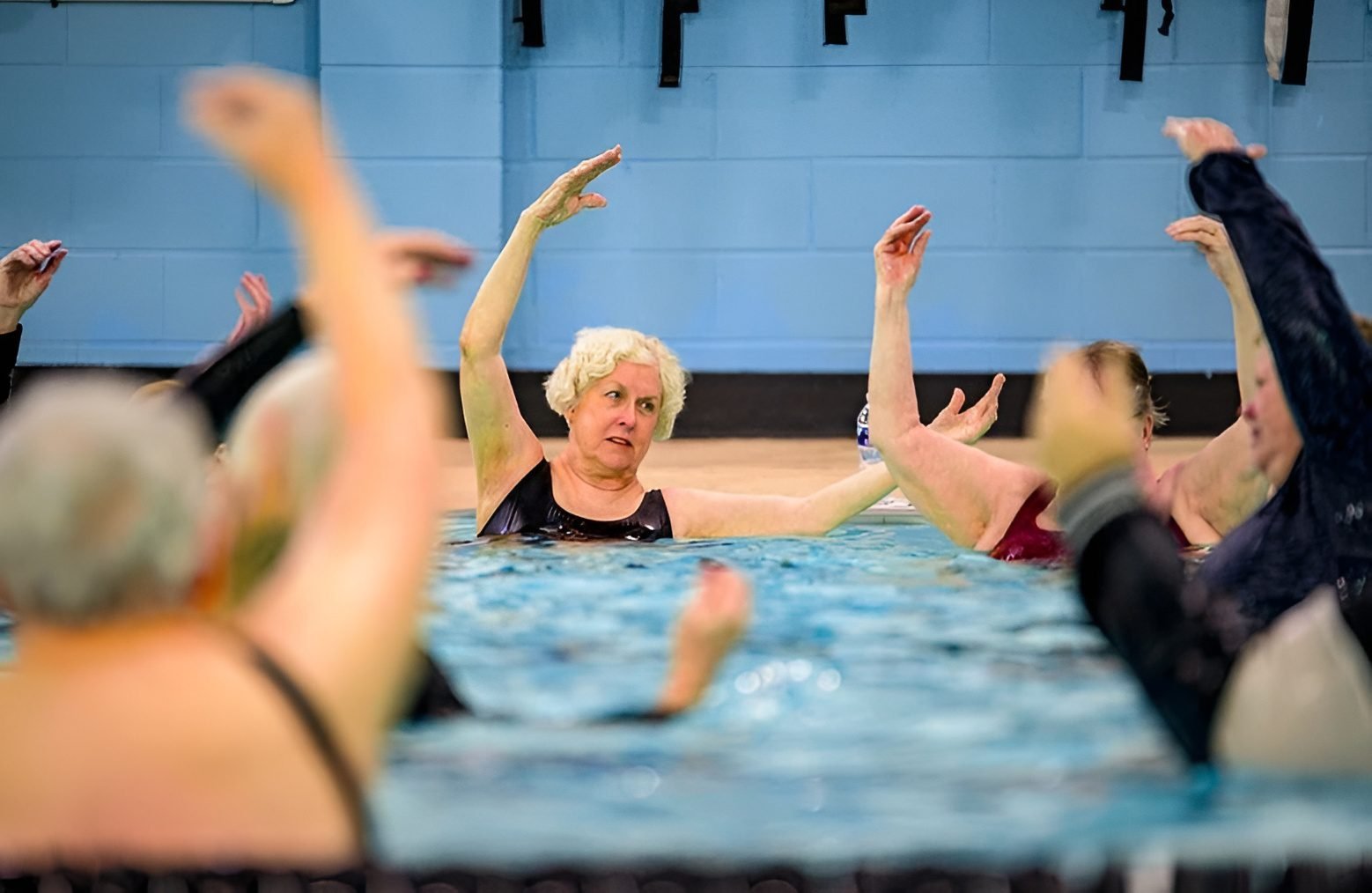
![Sudden Excessive Sleepiness In The Elderly [Causes & Solutions]](https://caringhandshomecarefl.com/blog/wp-content/uploads/2023/12/elderly-sleep-disorders-therapy-768x512.jpg)



![What Are The Pros & Cons of Assisted Living? [2024 UPDATED]](https://caringhandshomecarefl.com/blog/wp-content/uploads/2024/01/Assisted-living-care-pros-cons-e1704122253120-768x612.jpg)
